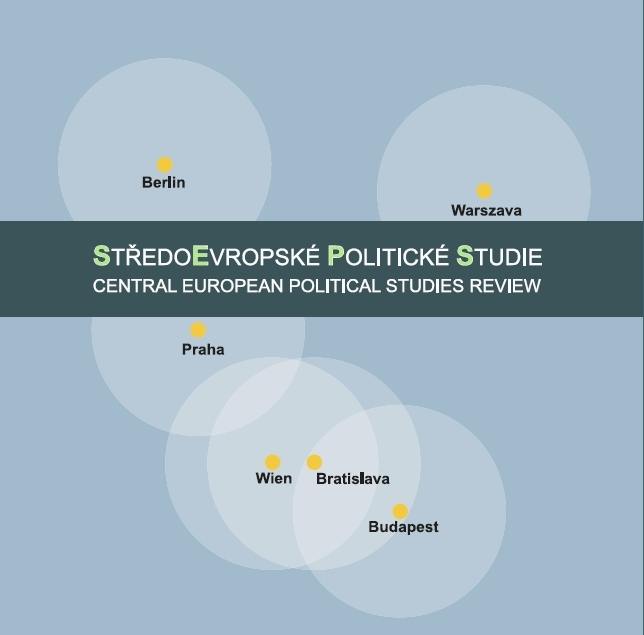
We kindly inform you that, as long as the subject affiliation of our 300.000+ articles is in progress, you might get unsufficient or no results on your third level or second level search. In this case, please broaden your search criteria.

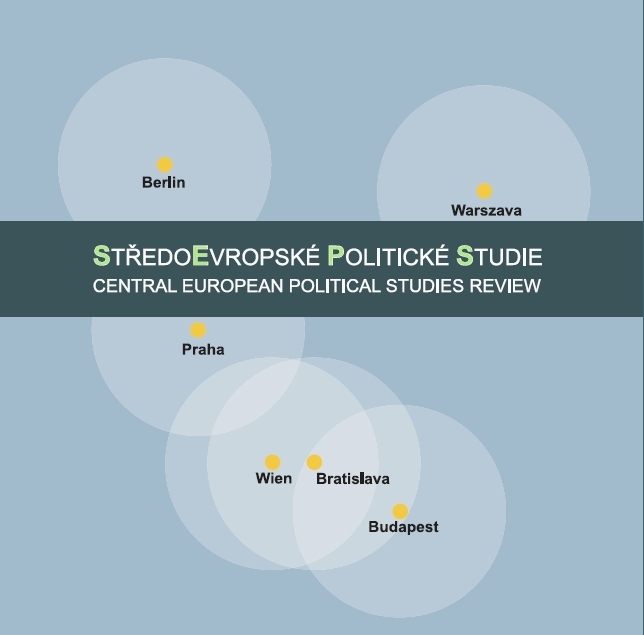
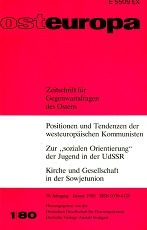
One of the most interesting changes in Soviet society during the Brezhnev era is the growing interest in religious issues, which is reflected in a growing shift towards religious communities, in nearly all areas of the Soviet Union and in almost all faiths. It is still too early today to be sure of the rank we have to accord to the religion factor in the evolution of Soviet society. The causes of change are evidently quite different from those of the Second World War, in which, as is well known, the religious communities celebrated a resurrection after their almost complete annihilation in the 1930s. Officially, the process could easily be explained by the threat to people or by the fact that almost all of them were still educated under non-socialist conditions. However, these patterns of explanation are failing today, when the Soviet Union is experiencing its most tranquil development so far; In view of the fact that the religious upheaval also affected the post-war generation, they fail because, not least, people find the way to religion derived from diehard atheist families. There is z. For example, the fate of Yevgeny Barabanov, born in 1946, is one of the most prominent orthodox lay theologians. He was brought up in the spirit of the party. His father was the boss of a large armaments operation. At the age of fifteen, he suddenly had a strong religious interest. He reads the Bible and painstakingly procures the theological literature, goes to church, gets baptized and hangs up icons in his room. His father has him psychiatrically examined, fortunately without findings. Yevgeny leaves his parents' house, but returns later because the parents corrected their point of view.
More...
In the post-war Albanian campaign against religion, 1967 was the decisive year. In the midst of the Cultural Revolution of the country, which ran parallel to that in China, the First Party Secretary, Enver Hoxha (Hodja), announced in a speech to the Central Committee of the Party on February 6, 1967, a new policy aimed at the complete destruction of the religious organizations in his country. The onslaught of the country's young revolutionaries against organized religion resulted in the closure, destruction or conversion of 2169 churches, mosques, monasteries and other religious institutions throughout Albania within a few months. In November 1967, a special decree annulled all previous provisions on church-state relations, depriving all religious communities of the constitutional basis, that is, in Albania above all the Mohammedans, the Eastern Orthodox Church, the Bektashi (a branch of the Shiites, whose world headquarters moved in the 1920s from Ankara to Tirana) and the Roman Catholic Church - in size in this order
More...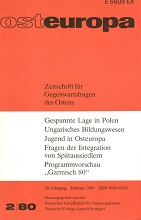
The recent in-party discussion on questions of the relationship between church and state is expressed, inter alia, in the extensive book published in 1978 by Todo Kurtović „Church and Religion in the Socialist Self-Government Society“. Kurtović is a member of the CC of the BKJ and chairman of the Socialist Lea-gue; until the last party congress in 1978 he was influential secretary in the now dissolved executive committee of the Central Committee Bureau. Already on June 6 and 7, 1977 In cooperation with the party school "Josip Broz Tito", the committee responsible for education had invited to a seminar entit-led "The Communist League of Yugoslavia in relation to the phenomenon of religion and the church and the activities of the faith communities in our country‘s socialist self-administrated society." The seminar, attended by 200 officials, dealt with issues that were frankly acknowledged to have been neglected so far because they were generally considered" delicate "or" even unpleasant for public discussion. " The papers and contributions to the discussion, which we present in part in the following, have been summarized in a booklet "exclusively for internal use" within the BKJ and can therefore be considered as authentic for the process of shaping the opinion of the Yugoslav Communists. The following excerpts are limited to utterances on the complex of a "Marxist foundations of education" and, in addi-tion to barely accessible figures on the status of "religiosity" in Yugoslavia, also reflect the divergent views on the possibility presented in the discussion, namely that of faithful teachers to be taught by state schools.
More...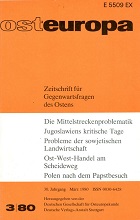
Dossier of texts presenting (in extracts): Mieczysław F. Rakowski: Na przyjazd papieża [Zur Ankunft des Papstes], in: Polityka, 2. 6.1979 Dominik Horodyński: Wizyta papieża [Der Papstbesuch], in: Kultura, Warschau, 2. 6.1979 Adam W. Wysocki: Doniosła wizyta [Hoher Besuch], in: Życie Warszawy, 273. 6.1979 Jerzy Turowicz: Namiestnik Chrystusa na polskiej ziemi [Der Stellvertreter Christi auf polnischem Boden], in: Tygodnik Powszechny, 3. 6.1979) Marian Kuszewski: Doniosła wizyta [Hoher Besuch], in: Trybuna Ludu, 11.6.1979 Mieczysław F. Rakowski: Spotkanie [Begegnung], in: Polityka, 23. 6. 1979 Jerzy Turowicz: Krzyż na Placu Zwycięstwa [Das Kreuz auf dem Platz des Sieges], in: Słowo Powszechne, 24. 6. 1979
More...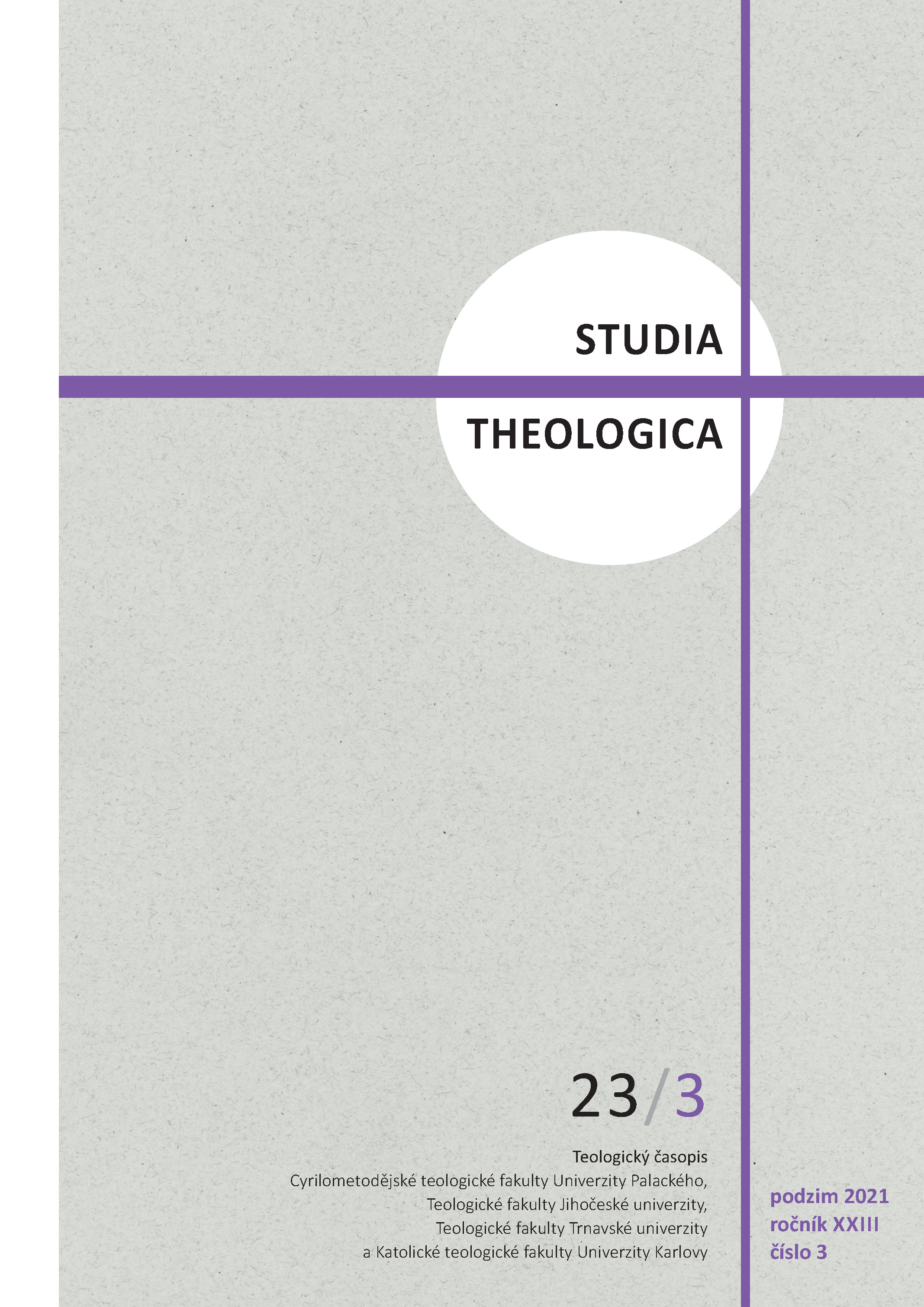
This article examines how Latin American liberation theology has changed in the past decade. It begins with a major challenge posed to liberation theology by Clodovis Boff, an important author on methodology in liberation theology. The article then examines how liberation theologians at the time and since have responded to the challenge of making liberation theology more theological. They have done this against a backdrop of two events that have had a positive impact on liberation theology’s standing. The first negative event is the worsening political and economic situation that has highlighted liberation theology’s commitment to the poor. The second positive occurrence was the election of Pope Francis, whose language is full of the terminology used by liberation theologians. The effect of these developments is followed through a brief study of three major Latin American theological congresses.
More...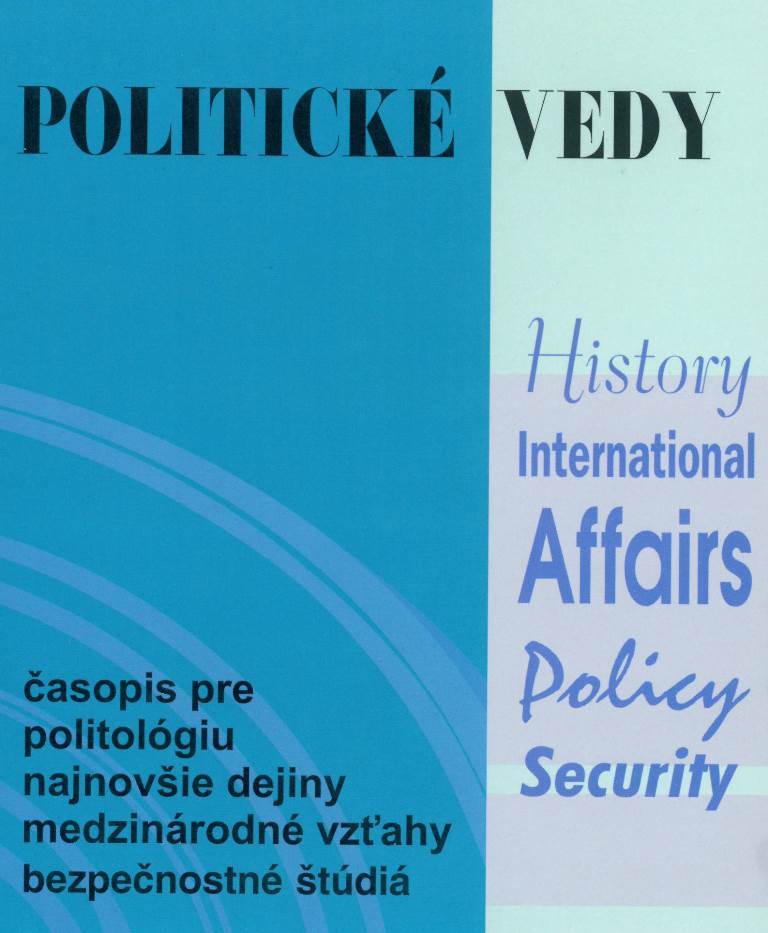
Review of: LACORNE, D. 2019. Limits of Tolerance: Enlightenment Values and Religious Fanaticism [Hranice tolerancie: Osvietenecké hodnoty a náboženský fanatizmus]. New York: Columbia University Press, 2019. 280 s. ISBN 978-0-231-18714-5.
More...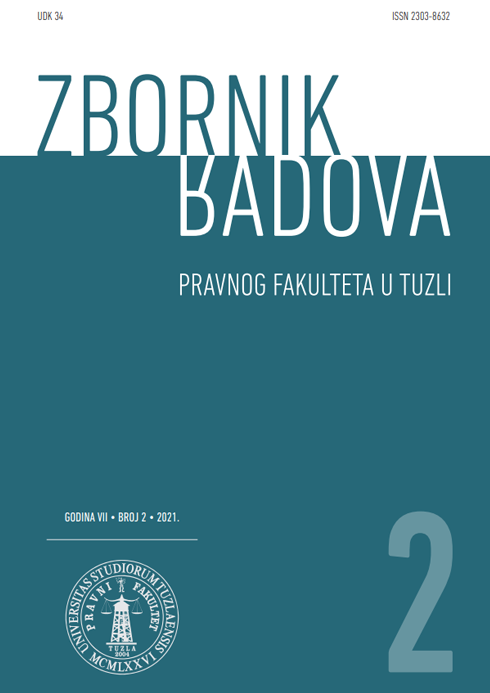
In this article, the author analyzes the content of “The Islamic Declaration” written by Alija Izetbegović in 1970. For the past four decades, anti-Bosnian Serbian propaganda has been endeavored to present this book as its own argument charges of alleged pan-Islamism by Alija Izetbegović and other prominent individuals, and thus the entire political movement he led. This text analysis proves the complete unfoundedness of such insinuations. The basic idea of the mentioned book is the claim that the Muslim world “from Morocco to Indonesia” is lethargic and fragmented. Therefore the reconstruction of it can be based on the integration of the Muslim world and the fact that Islam is Muslim peoples connecting factor. Through the analysis, it has been proven that this book does not mention or point to Bosnian Muslims or Bosnia and Herzegovina.
More...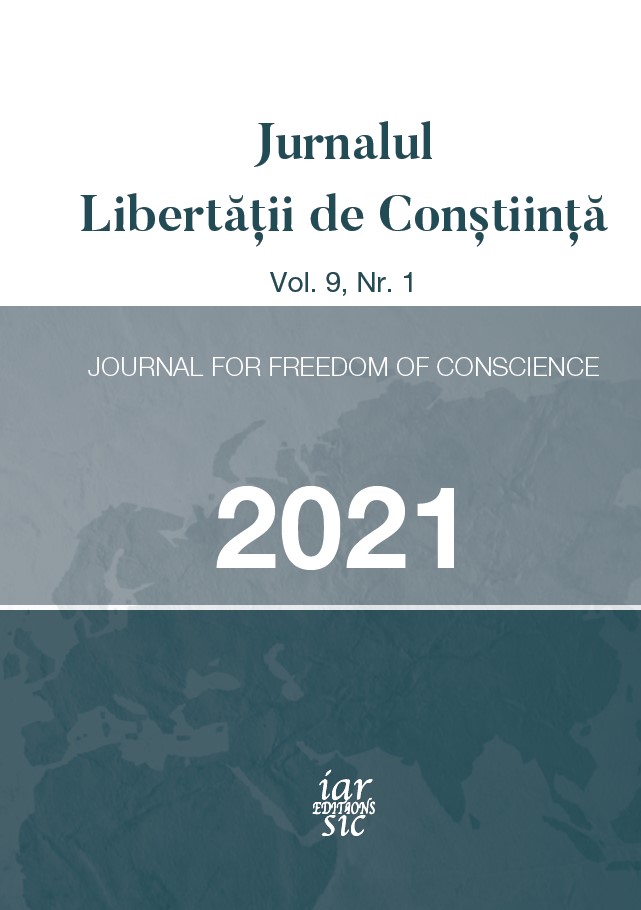
The scope of this paper is to review the interplay between apocalyptic narratives emerging from Christianity, Confucianism and Chinese folk religion in the vision of Hong Xiuquan (a charismatic rebel leader during the 19th century China), and the eruption of the bloody Taiping Tianguo rebellion. While offering a short historical and theological synopsis, I argue that Hong Xiuquan’s apocalyptic rhetoric and the Taiping Tianguo rebellion were ignited by the actual suffering of the Han peasants at the hand of Qing government, and was ideologically informed by the Chinese and Christian doctrines of suffering and hope for a free, fair and flourishing world of grand peace; a world which can only be sustained by God Himself.
More...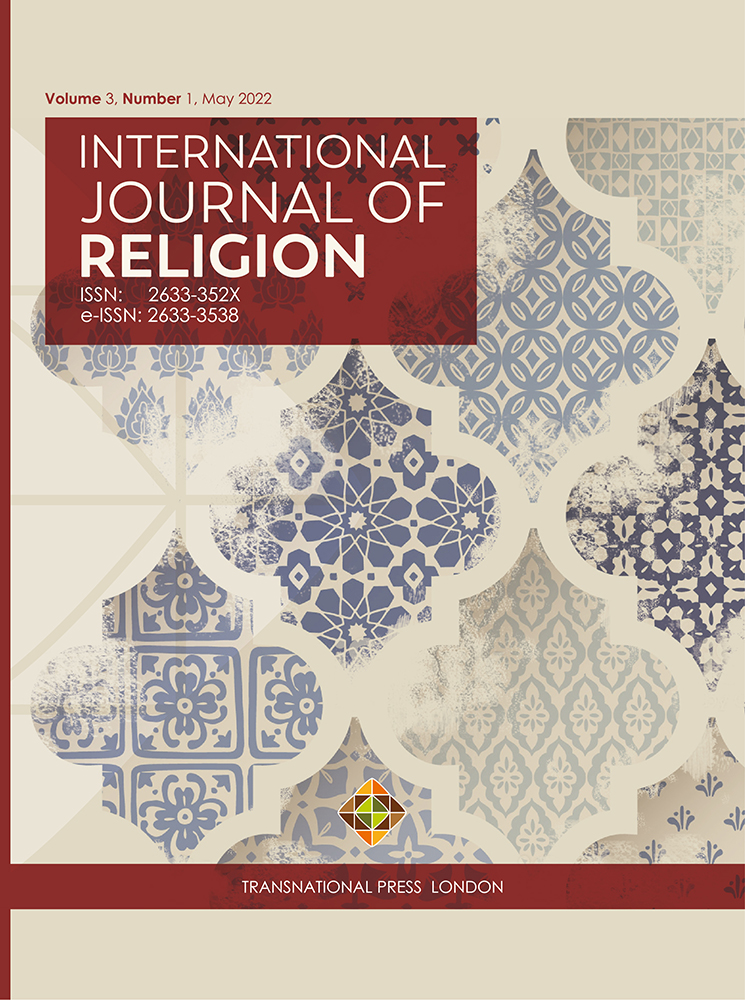
A rich literature on ‘populism’ and ‘religion’ has flourished in the preceding decade. Following a now consensual vision of ‘populism’ as ‘anti-pluralism’, scholars such as Cas Mudde, Daniel Steinmetz-Jenkins, and Duncan McDonnell have homed in on how populists weaponize religious themes and live off the decline of organized religiosity. This paper revisits these theses through a re-examination of the first self-declared populist movement in history, the American People’s Party of the late nineteenth century and two of its most prominent political personalities – Georgia Populist Thomas E. Watson and Boston radical Benjamin O. Flower. Both Watson and Flower were convinced Methodists all their lives and saw Populist farming associations in the 1890s as a natural extension of previous church networks. After the movement’s defeat in 1896, however, both remodulated their Methodism for specific ends: anti-Catholicism, opposition to Protestant missionary efforts, anti-vaccination sentiment and, in case of Watson, aggressive anti-Semitism. Rather than seeing these instances as deviations from a populist creed, this paper investigates how Flower and Watson’s Populism saw the crisis of American Methodism as part of a broader republican decline, and how this insight can inform contemporary discussion on the interrelation between populism, pluralism, democracy, and religion.
More...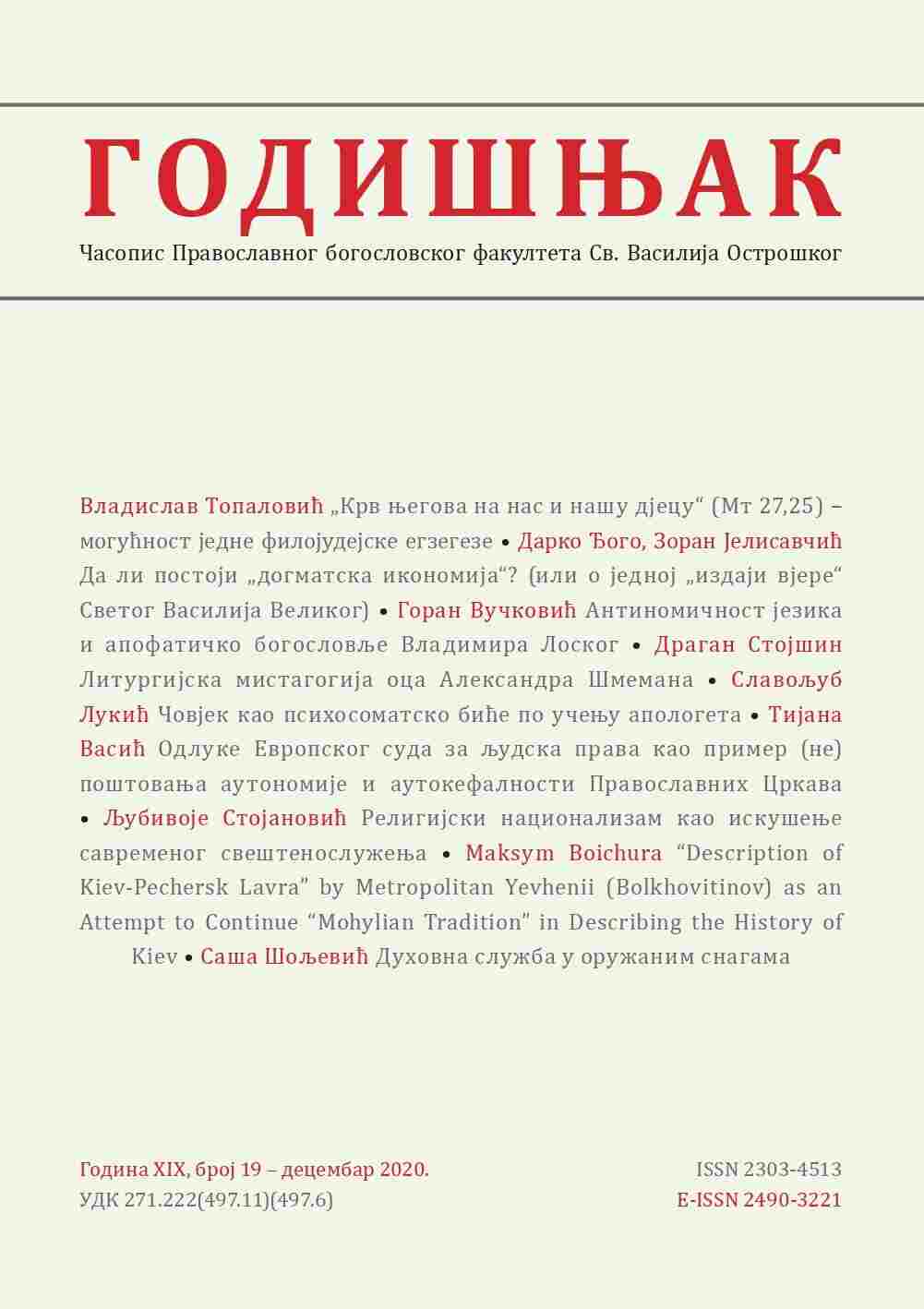
It is the duty of every country that becomes a member of the Council of Europe to sign an acceptance of all responsibilities and obligations that ensue upon its ratification of the European Convention of Human Rights. What constitutes the guaranteed religious rights defined in Articles 9 and 11 of the European Convention of Human Rights, and how much has case-law so far honoured the principles of autonomy and autocephaly of Orthodox Churches, is the core question of this paper. Analysis of the key court decisions, brought by the European Court of Human Rights dealing with the Orthodox Churches, could give us an answer what to expect in church-state legal relations development. It can also help the Serbian Orthodox Church to develop a legal point of view in order to protect itself from other potentially harming religious groups.
More...
This article focuses on the manifestations of Islamophobia of Czech politicians and political parties on the social networking service Twitter during the 2015 migration crisis. It utilizes the securitization theory of Copenhagen school as a theoretical framework, and through content analysis of relevant tweets aims to provide more data on what role Islamophobia played in the securitization of incoming migrants. We find that although securitization, and much more politicization, of migrants took place, obvious Islamophobia, similar to the one of the Czech Islamophobic movement, happened only in some cases. A number of those politicians who politicized or migrants and Islam usually raised their voices against radical Islamophobes.
More...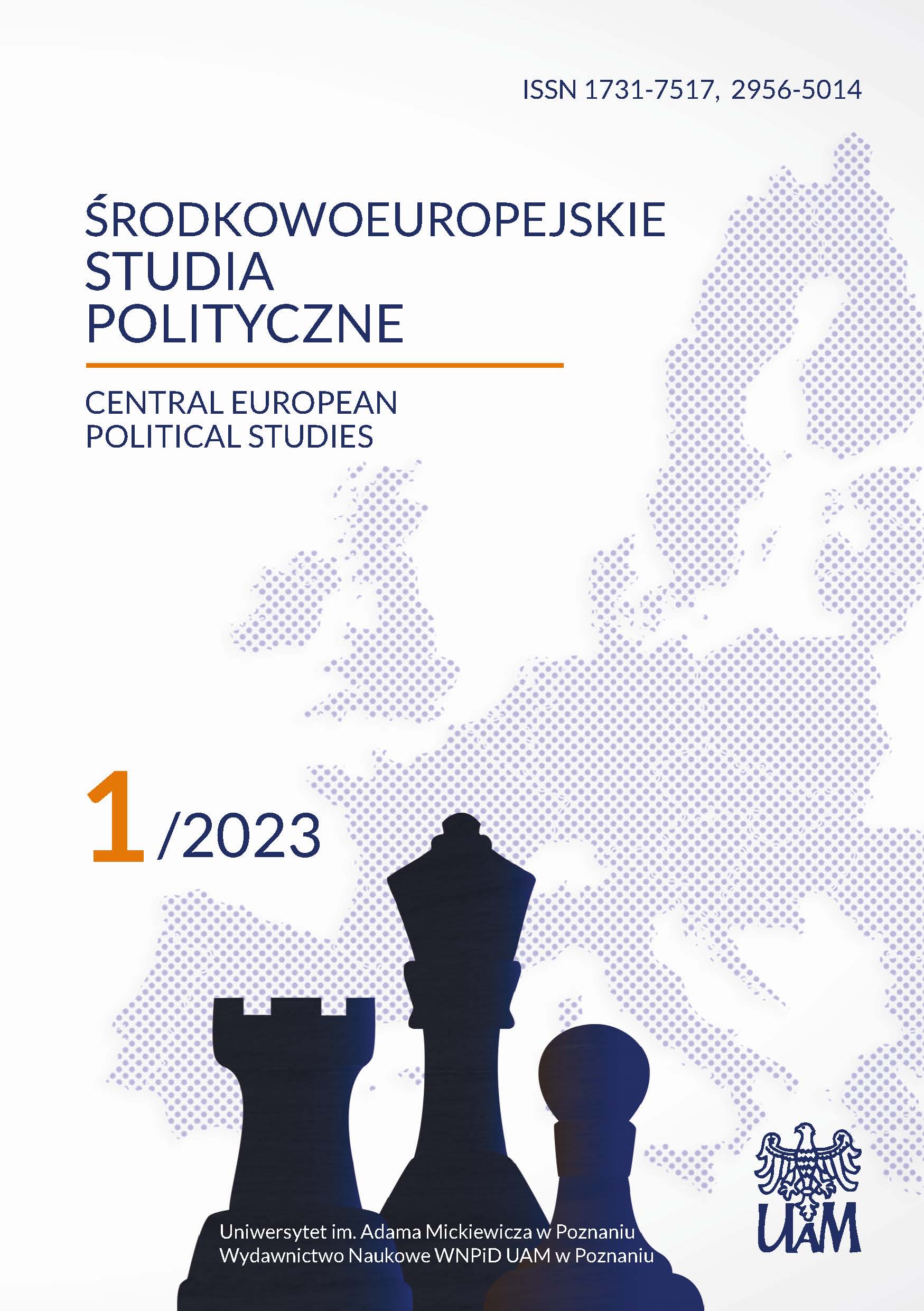
The article is devoted to arguments for the thesis that not only the concept – according to which “God does not exist” (God in the sense given to him by theologies) – is indeed atheistic but also the theory which, initially declaring attachment to the idea of God religiously understood, simultaneously formulates its confession of faith in the socio-cultural and axiological order in a way fundamentally contradictory to the image of God as the highest level of the absolute hierarchy, the personification of absolute power, and exclusive competence to define good and evil. In this sense, atheism is the view of the fundamentally non-hierarchical structure of the world and the non-existence of one absolute authority. In this sense, atheism is (despite the theistic declaration) the worldview of the Polish Brethren.
More...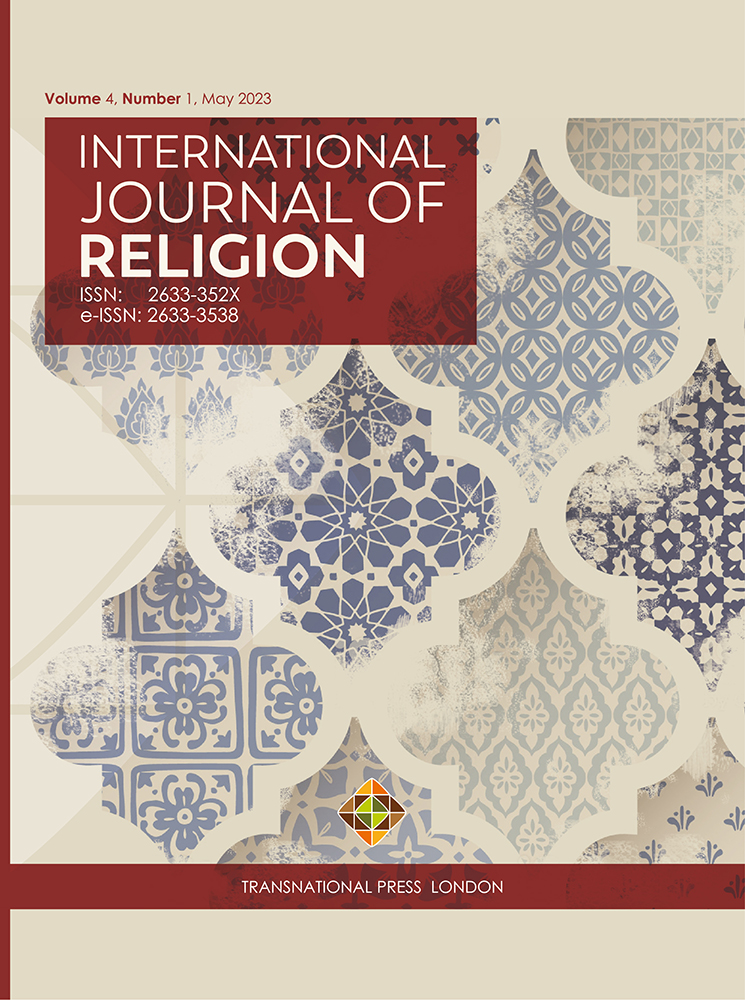
In this article, we trace a specific ‘situated bodily practice’, namely the ‘act of covering’ the head with a scarf during liturgy, in a church that has migrated from the Middle East to Sweden. This ‘veiled tradition’ is interpreted as a ‘ritual of migration’ that can cast light on the complexities of re-producing traditions in a new setting, functioning as a ‘cultural prism’ for the question of integration. The broader aim is to nuance the symbolic value given to the veil in political discourse in the West, as a sign of (non-)integration. The empirical basis for this study has mainly been film analyses of liturgies in Syriac Orthodox congregations in Sweden. Building on an analysis of this material, four different usages of the headscarf could be traced: as ordinary dress, that in theory should cover the hair, but seldom did; as festal dress, resembling an accessory; as liturgical dress, used both as a token of piety and spiritual authority, and not to dress in a headscarf, resisting gender discrimination. These usages are compared to, but not fully explained by the idea of ‘new veiling’ among Muslim women, and therefore broaden the understanding of veiled traditions in a migration context.
More...
Reports show most religious groups in the United States, especially Christian evangelicals, are showing more affiliation to the Republican political party. Nonetheless, members of the Democratic political party are also weaving faith into their rhetoric. A citizen’s affiliation with a political party can change over time, and political affiliation might influence behavior. This study compares and contrasts individuals affiliated with political parties and those who are not on their: (1) decision-making process purchasing everyday products, (2) relationship with God, (3) and ethical and sustainable behaviors.Using Pew Research data (n=3,278), this study compares and contrasts individuals affiliated with political parties and those who are not on their decision-making process in purchasing everyday products, relationship with God, and ethical and sustainable behaviors. Despite significant differences between political parties, most of them have thanked God for something and almost half of them have asked God for help and guidance. The results show people in the U.S. with various party affiliations are somewhat religious and spiritual. The notion that only Republicans will be guided by religious beliefs is misguided. Almost half of Democrats in this study show strong religious values.The study has several limitations. First, Republican leaners and Republicans or Democrat leaners and Democrats were not separated. People who are leaning toward a political party may have different attitudes toward various issues. Future research may investigate this issue and contrast differences between these groups. Second, the study did not look at differences between religion and denomination.The paper makes several contributions to this area of study. First, similarities and differences between individuals affiliated with political parties are determined. Second, myths about stigma toward a particular political party are debunked, and finally, insights for religious and political leaders on their followers’ behavior are provided.
More...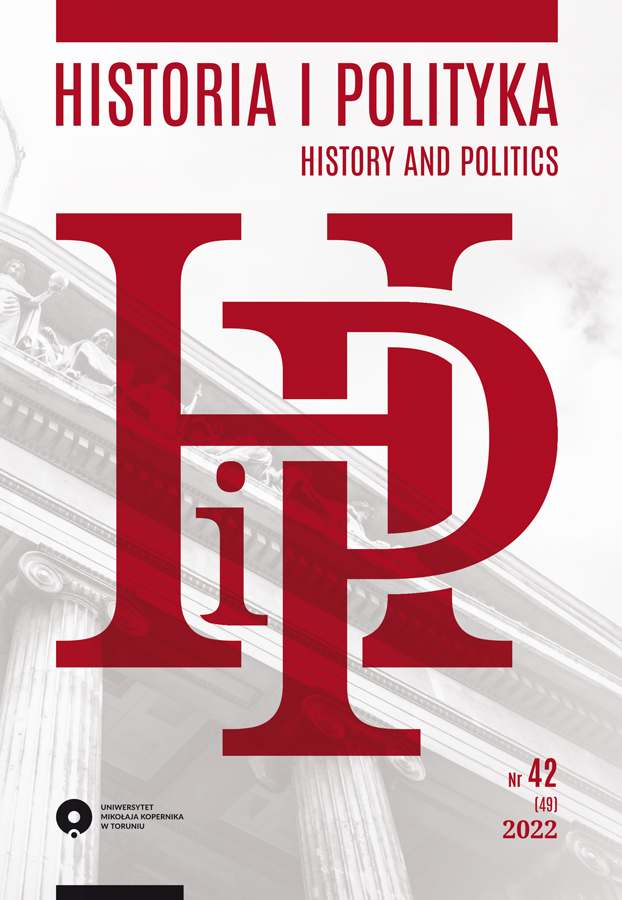
In recent years, the issue of the relationships between the state and the Catholic Church has been increasingly present in public discourse in Poland. New political parties have become embroiled in the debate, taking diverse stances. The paper discusses the attitude of new political parties in Poland towards religion and the Catholic Church, using three groupings as examples: the Palikot Movement [Ruch Palikota], Robert Bie- droń’s Spring [Wiosna Roberta Biedronia] and the Together Party [Partia Razem]. The authors, using content analysis as the research method, reviewed the party policies and media statements made by politicians on the topic. The aim of the article is to investigate the positions taken by selected political parties towards religion and the Catholic Church and to verify the hypothesis that the new left-wing parties advocate a strict separation of church and state.
More...
The Synod of Bishops on Synodality has placed the church as a synodal community at the core of Catholic theological reflection. The conciliar or synodal nature of the church is also a topic of ecumenical dialogue. This essay surveys the theme of conciliarity in some WCC texts over the past 50 years, arguing that discussions of conciliarity reflect the interrelation between contemporary ecclesial events and theological developments. This diachronic analysis also indicates that while for two decades conciliarity has been regarded as a hopeful model for achieving communion and collaboration between the churches, the concept has gradually lost its appeal. The twin concept of synodality emerged in the latest ecclesiological convergence texts with a different focus. The study reveals the shift from an understanding of conciliarity centred on the people of God and baptism to one increasingly focusing on ordained ministry. At the same time, the topic of synodality, which remerged recently in Catholic theology, indicates the reception of some ideas developed in ecumenical dialogue.
More...
The aim of the article is to present three important stages of the life andwork of Bishop Justinas Staugaitis: 1) education, 2) pastoral, social, culturaland political activity, 3) holding the office of bishop of the Telšiai diocese.Bishop Staugaitis was a student of the Junior High School in Marijampolė andthe Theological Seminary in Sejny, where he took part in the secret activities ofLithuanian seminarians and developed strong national attitudes. The most im-portant contribution he made to Lithuanian culture and education was thefounding of the “Žiburys” Benevolent and Educational Society, which operatedin the then Suwałki Voivodeship and contributed to raising the level of culturein society. He also edited the magazine “Vadovas” addressed to priests. DuringWorld War I, Bishop Staugaitis became involved in the political life of Lithua-nia and was elected a member of the Lithuanian Council. It was then that hesigned the Act of Independence of Lithuania. He was elected to the LithuanianConstituent Assembly of the first and second terms, in which he served aschairman. After the establishment of the Ecclesiastical Province of Lithuania,J. Staugaitis was appointed ordinary bishop of the Telšiai diocese.
More...